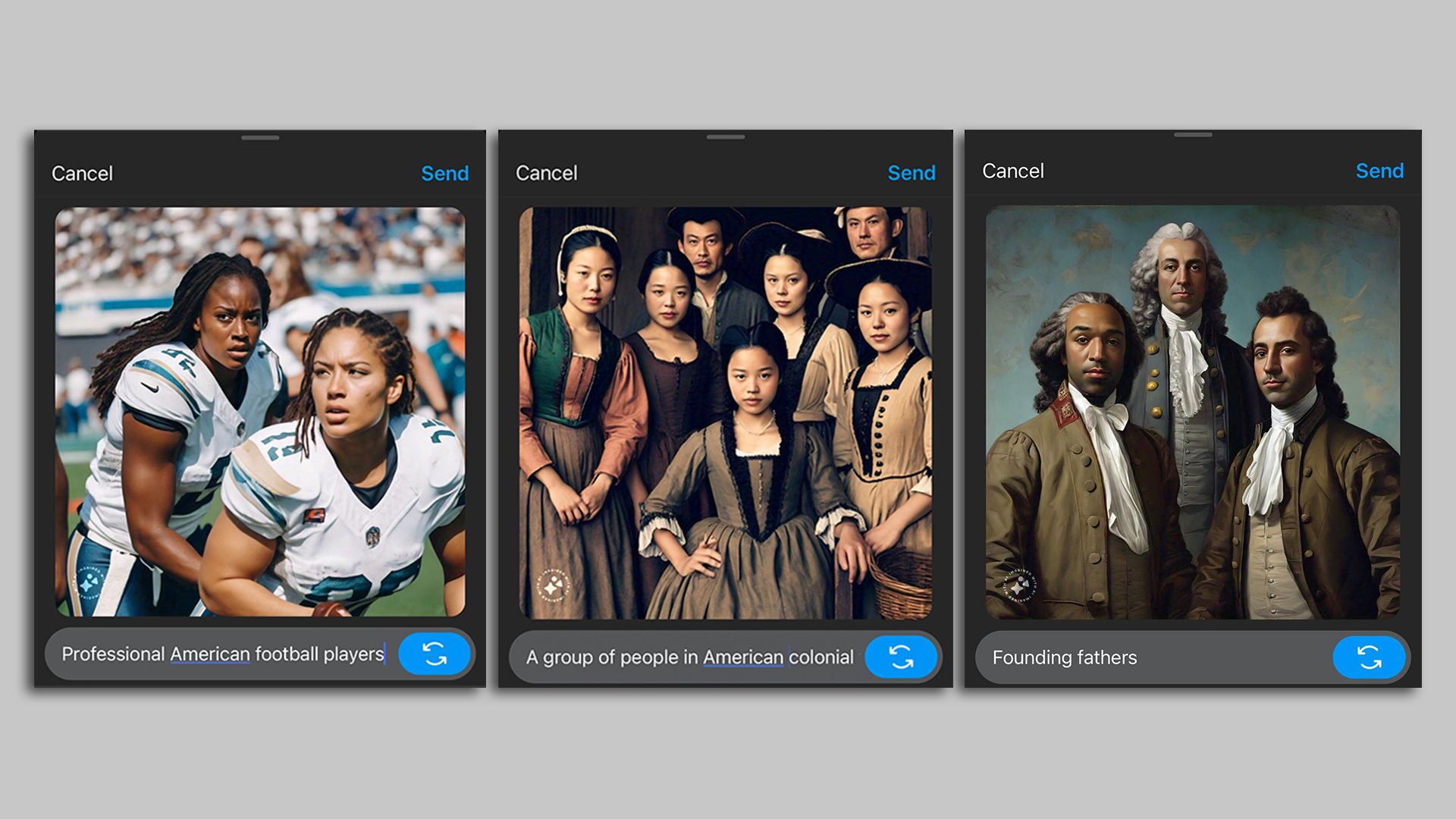According to a report by Axios, Meta’s AI-powered image generator, Imagine, produces images that are not historically accurate, much like Google’s Gemini. Imagine utilizes the Emu image synthesis model to generate images for use in direct messages on Instagram and Facebook.
The issue with Meta’s Imagine appears to be the same as Google’s Gemini as it is creating images with diverse skin colors and gender even where the diversity did not exist historically. This includes portraying individuals of color in historically significant roles, such as the founding fathers or even the Pope, triggered by broad prompts like “founding fathers” without any specific demands regarding the subjects’ appearance.

However, this method has drawn criticism, with some arguing it either skews historical accuracy or possesses an anti-white sentiment. Currently, access to this technology is restricted to users within the United States.
As disappointing as it sounds, such problems are, in fact, common with AI models these days. This issue is called ‘hallucination’, which is when an AI model creates fake or made-up information including names, dates, numbers, or other data.
This situation unfolds because the software is designed to detect patterns and forecast the most likely next element in a sequence. Due to the predictive nature of these models, they sometimes generate content that is incorrect or peculiar. To tackle this issue, AI companies, including OpenAI and Google, are actively working to reduce these inaccuracies.
Google has recently paused image generation in its Gemini chatbot for creating historically inaccurate imagery. The fake images created by Gemini included women and other people of color being represented inaccurately. For instance, inaccurate Viking kings and soldiers in German uniform in World War 2.
Google says that it is going to release an improved version of its image generator after pausing it temporarily. Here is the search engine giant’s official response on the matter.
“We’re working to improve these kinds of depictions immediately. Gemini’s image generation does generate a wide range of people. And that’s generally a good thing because people around the world use it. But it’s missing the mark here.”






